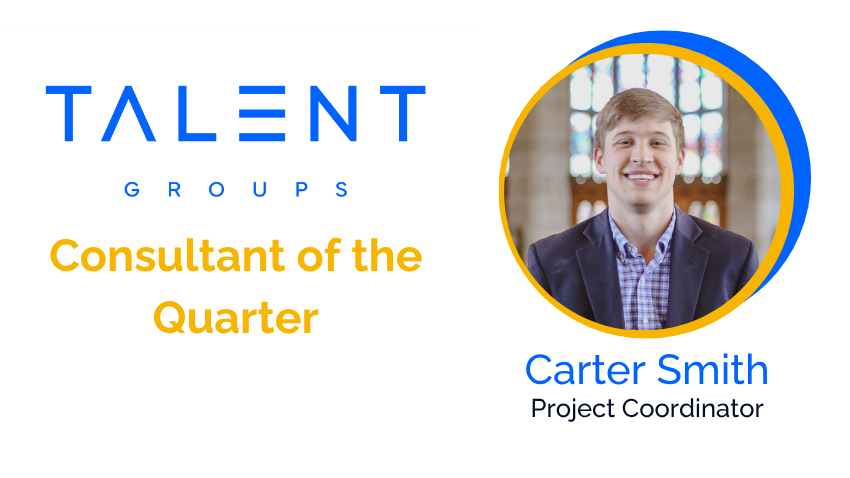3 Tips For Hiring Top Talent – Why The Interview Is More Important Than You Think
TIP 1: KNOW WHO YOU’RE LOOKING FOR
Consider this first step—the scene-setting of the search process. To determine what type of candidate you’re looking for, you’ll need to first spend some time thinking about the role you are trying to fill. What will a candidate need to be successful in this job? What are the most important qualities or skills a candidate must demonstrate? Make a list of these criteria and ensure that everyone involved in the hiring process agrees on it.
That last point is especially important. It’s easy for teams to think they are all on the same page when it comes to hiring criteria. Until, that is, they bring in their top candidate for an interview. Soon, they discover that the skills the hiring manager focused on in the interview are different from the qualities and experiences the tech team lead wanted to learn more about.
So avoid the extra drama and start off on the right foot by defining who you’re looking for before you send out interview requests.
TIP 2: ASK THE RIGHT QUESTIONS
All great interviews have one thing in common – effective interview questions. While there are many different types of questions that can be useful during a job interview, questions can generally be grouped into a few broad categories. They include:
GENERAL OR FACT-BASED QUESTIONS
Fact-based questions are commonly used to clarify or confirm information that a candidate has previously provided. For example, “Tell me about your previous technology experience,” or “How many years did you work at Company X?” Interviews will often begin with questions that fall into this category because they establish a clear understanding of the facts, an important basis for a successful interview. They are also great warm-up questions, allowing both the interviewer and interviewee to get comfortable.
BEHAVIORAL QUESTIONS
While it’s not a perfect science, the theory behind behavioral interviewing is that a candidate’s past actions can help an employer predict what they will do in the future. That’s why behavioral questions are so important and tend to dominate most job interviews. These kinds of questions are also difficult to exaggerate or fake since they require the candidate to speak from experience. Examples of behavioral questions include, “Tell me about a time when you failed and explain how you responded,” or “Talk about a challenge you faced in your previous role and how you overcame it.”
SITUATIONAL QUESTIONS
These questions deal in hypotheticals. Candidates are usually given an obstacle or issue and must solve or explain their response to it. Skilled interviewers can use these kinds of questions to gauge how well-prepared candidates are for the unknown work challenges they might encounter in the role. Situational questions are often specific to the job and your company, so they also provide a good indication of values alignment and culture fit.
PRACTICAL QUESTIONS
Unlike situational questions, these interview questions go beyond the hypothetical to deal with real (often simulated) conditions. While these questions tend to be more involved, allowing the candidate time to complete or solve the question and present their answer, they are your best option to assess a candidate’s potential and see firsthand how they would problem-solve and reach a conclusion. Essentially, your company is getting a demo of how an employee would work before hiring them.
Ultimately, the most effective interviews combine questions from all of these categories to get answers that help you better understand the candidate, and determine if they have the skills and experience you’re looking for.
TIP 3: STICK TO A STRUCTURE
If you went to see a movie at your local theater, you would expect the movie to open on the first scene, right? If the screen came on and the movie was already halfway through, you’d be pretty confused. That’s because we expect movies to follow a certain structure.
The same is true of an effective job interview. You wouldn’t jump right into behavioral questions without an introduction, a little small talk, and some fact-based questions first. We’ve written before about what to cover in an effective IT interview, but here’s a quick structure you can follow to help you stay on track.
INTRODUCTIONS AND OVERVIEW
Ease into the interview with introductions. Tell the candidate who you are, what your role at the company is, and why you are interviewing them. This is especially important when a candidate could end up interviewing with several people. Why are YOU interviewing them? It’s also a good idea to give a brief overview of the interview structure so the candidate knows what to expect. After you’re finished, give the candidate a few minutes to introduce themselves then follow-up with any clarifying questions.
ASK ALL THE QUESTIONS
This is the time to ask any questions you have for the candidate. Hopefully, you’ve come prepared with a list of questions to work off of. You’ll also want to be sure you have included a mix of interview questions (see Step 2) to ensure you get all the information you need about the candidate’s qualifications and skills.
CREATE SPACE FOR THE CANDIDATE
Be sure to leave time at the end of the interview for the candidate to ask questions about the role, the organization, the team they’ll be working with, and compensation and benefits. Remember, the interview isn’t just for you – it’s also for the candidate. Asking questions allows a candidate the opportunity to confirm whether your job is the right fit for them.
THE FINAL SCENE
The talent search and hiring process can sometimes feel dramatic, but it doesn’t have to be. With these tips for conducting more effective job interviews, you’ll be able to find and hire qualified IT professionals for your company. Now’s that a perfect ending.






